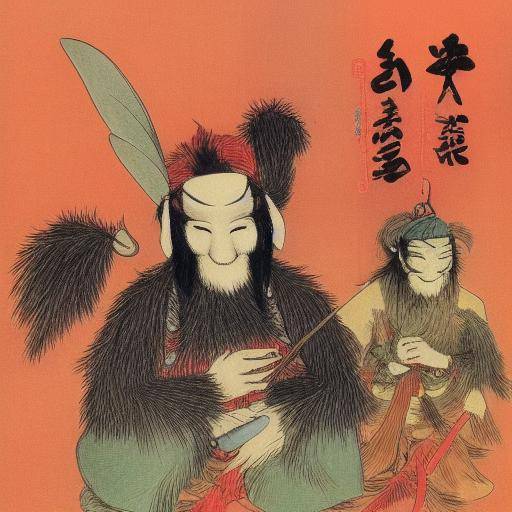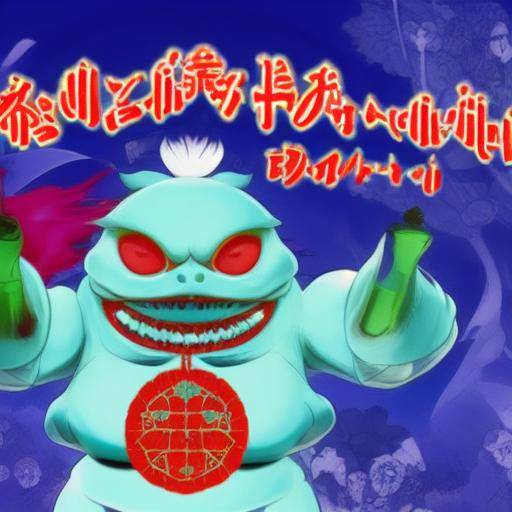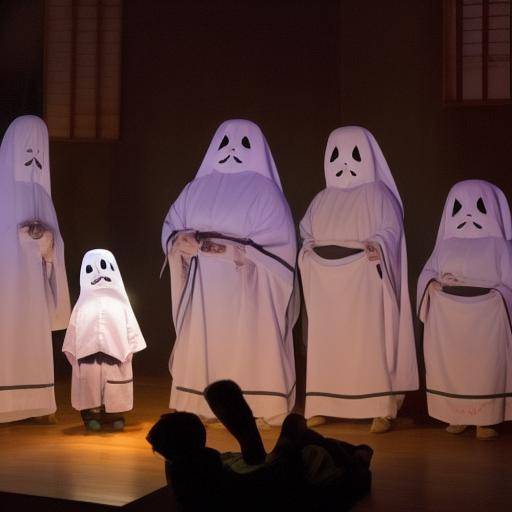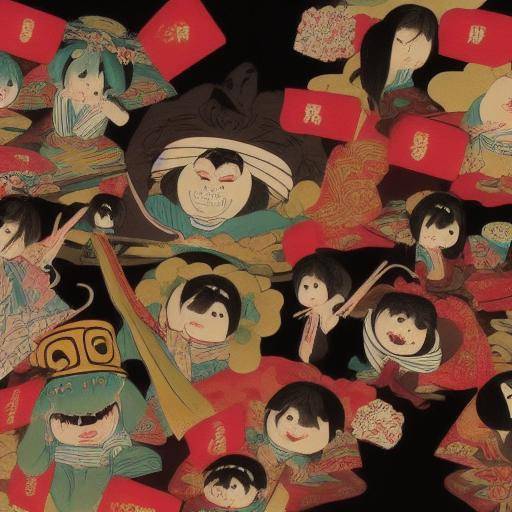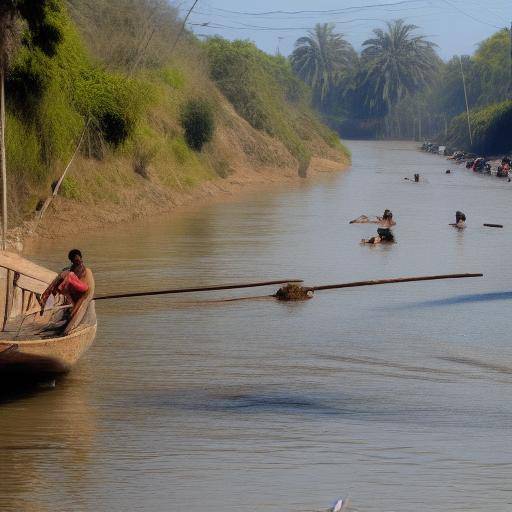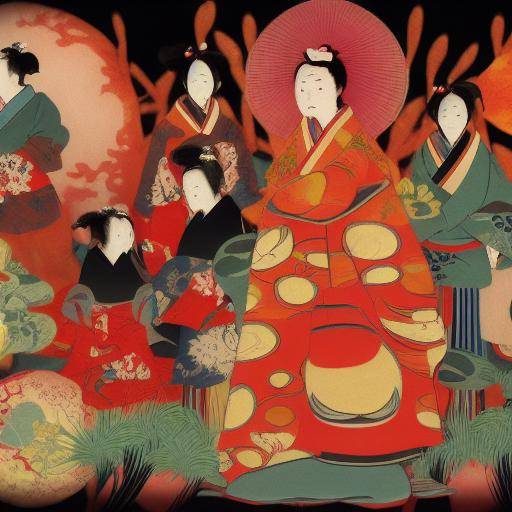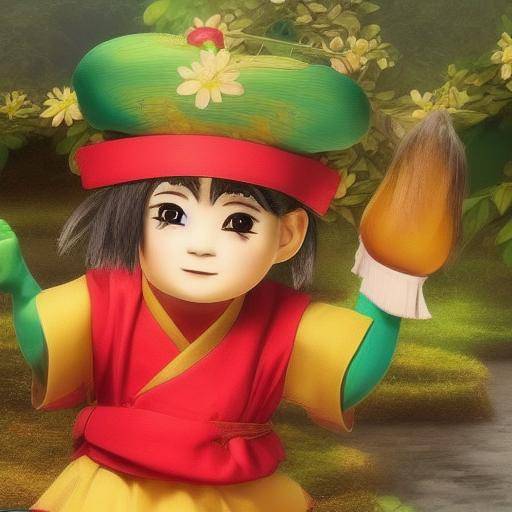
Welcome to the fascinating history of Kappa! In this article, we will thoroughly explore Japanese culture and mythology to discover the mysterious and naughty being known as the Kappa, an aquatic yokai that has captivated popular imagination for centuries. In addition, we will learn about its link to the rivers and its intrinsic Japanese courtesy. Prepare for a trip to an enchanted world full of legends and traditions.
Introduction to the Yokai
The yokai are legendary beings that form an integral part of Japanese mythology. These supernatural creatures occupy a prominent place in folklore, arts and Japanese culture, influencing everything from literature and theatre to film and video games. The term "yokai" encompasses a wide range of entities, ranging from friendly and playful to evil and terrifying.
The Kappa: Origin and Meaning
History and Background
The Kappa is a particularly intriguing yokai with a rich and multifaceted history. Its origin dates back centuries, when legends about these aquatic creatures began to take shape in Japanese collective consciousness. According to tradition, the Kappa live in rivers, lakes and ponds, where they perform naughty and often dangerous mischiefs.
Characteristics and Behavior
The Kappa look and behavior are unique and often surprising. They are described as human-like beings, with monkey faces, squamous bodies and, most notable, a gap at the top of their heads full of water. This liquid is crucial to its existence and, according to legend, if drained, the Kappa will lose its power.
Myths and Legends
The Kappa has starred innumerable captivating stories over the centuries. From kidnapping children to challenging travelers, their reputation as naughty has remained firm. However, he is also attributed positive qualities, such as being known for his extreme courtesy and his love for cucumbers.
The Kappa and its Circle with the Rivers
The rivers have played a crucial role in Japanese mythology, and Kappa is closely associated with these water bodies. It is believed that these yokai choose the rivers as their main habitat, where they can move with agility and hide easily between the aquatic weed. This symbolic connection between the Kappa and the rivers has influenced numerous traditions and rituals over the years.
Rivers like Doors to the Yokai Kingdom
In the Japanese worldview, rivers are considered as meeting points between the human world and the Yokai kingdom. It is believed that the Kappa and other supernatural beings can use rivers as magical portals, moving between both worlds easily. This belief has contributed significantly to the reverence and caution surrounding the rivers in Japanese culture.
The Courtesy of the Kappa
One of the most intriguing aspects of the Kappa is its notorious courtesy. Although they are portrayed as naughty beings, the Kappa have a very strict ethical code and focus on respect and courtesy. Furthermore, it is said that the Kappa are deeply committed to reciprocity and that they can be valuable allies if treated with kindness.
Laws of Gratitude and Courtesy
The stories about the courtesy of Kappa abound in Japanese mythology. There are numerous legends that relate encounters between humans and Kappa, in which mutual courtesy and gratification play a crucial role. These narratives aim to convey fundamental values of respect, gratitude and courtesy, and show that, despite their naughty nature, the Kappa value reciprocity and kindness.
How to interact with a Kappa?
If you ever meet a Kappa, either in a river or somewhere else, it is crucial to maintain a respectful and polite attitude. It is said that the Kappa responds favourably to gratitude and courtesy, and it is important to remember that, although they may be naughty, they can also be valuable allies if treated with kindness. In addition, cucumbers are believed to be their favorite food, so offering cucumbers can be a sign of courtesy and good will.
Conclusion
In short, the Kappa is a fascinating being that embodies the rich Japanese mythology, the importance of rivers in Japanese culture and intrinsic courtesy. His legacy continues to influence popular culture and serves as a reminder of Japan's rich tradition and lasting beliefs. Through its association with the rivers and its dedication to courtesy, the Kappa continues to captivate the imagination and curiosity of those who explore the world of the yokai and Japanese culture.
Frequently asked questions
What other yokai beings have a relationship with water in Japanese mythology?
In Japanese mythology, other yokai beings associated with water include the Umibozu, a great sea monster, and the Funayurei, a vengeful spirit that protects the ships.
What role do rivers play in everyday life and Japanese traditions?
The rivers occupy a central place in daily life and Japanese traditions, being venerated at festivals and rituals, and playing a crucial role in agriculture and transport.
How does courtesy manifest in Japanese culture beyond interactions with yokai?
Courtesy is a central value in Japanese culture and is manifested in many aspects of everyday life, including language, social customs and labour interactions.
What symbolizes cucumber in Japanese culture?
The cucumber is considered a purifying food and symbolically associated with luck and good fortune in Japanese culture, which can explain the taste of Kappa for this vegetable.
Is the Kappa somehow represented in Japanese modern popular culture?
The Kappa remains a recurring element in Japanese popular culture, appearing in manga, anime, films and video games, as well as cultural festivals and exhibitions.
Are there other mythological figures in other cultures that share similarities with Kappa?
Several cultures have mythological figures that share similarities with the Kappa, including belief in naughty or mysterious aquatic beings that inhabit rivers, lakes and seas.
I hope this article has provided a fascinating insight into the Kappa world and its relationship with the rivers and Japanese courtesy!


